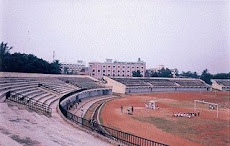
More turtles are awaited as nesting is to continue for some more days
Forest officials keeping watch on tourists in a bid to safeguard the nesting
--------------------------------------------------------------------------------
BERHAMPUR: Olive Ridleys started mass nesting on Rushikulya rookery coast in Orissa from February 17 night.
Sporadic nesting of these turtles had started on this coastline since past few days. On Saturday night around 3500 Olive Ridleys came out of the sea to lay their eggs. It hinted at the start of mass nesting of the turtles at this coast for this season. On Sunday night more than 80,000 Olive Ridleys nested on a stretch of around two-and-half kilometres near Rushikulya rookery said A.K. Jena, the Divisional Forest Officer of Berhampur who monitored the protection of these turtles during nesting.
It may be noted that this coast is one of the most preferred nesting sites of Olive Ridleys. These turtles also nest at Devi River rookery and Gahirmatha Beach in Orissa. In 2006 a unique phenomenon had occurred on this coast with mass nesting of turtles occurring twice on this coast.
According to Mr Jena this mass nesting is expected to continue for a few more days as large numbers of turtles were still in the sea near the coast waiting to lay their eggs at night. Forest department officials and wildlife experts from the WWF and Wild Life Institute of India, Dehradun are monitoring the mass nesting.The whole stretch of beach meant for nesting has been divided into 33 segments of around 100 metres length. At all these segments data regarding the arrival of Olive Ridleys reaching the coast to lay eggs is being recorded. The fishermen of the area and tourists have been directed to refrain from entering the sea as the mother turtles are waiting to come out to the coast at night. Forest officials are keeping watch on tourists so that they do not hamper the tranquil nature of the beach which is a major criterion for mass nesting. Mr Jena said they started efforts to protect the eggs of these rare marine creatures. The stretch is to be fenced off to protect entry of predators like dogs and foxes which usually dig up to eat the eggs.
The Hindu, February 17

















.jpg)


















































No comments:
Post a Comment